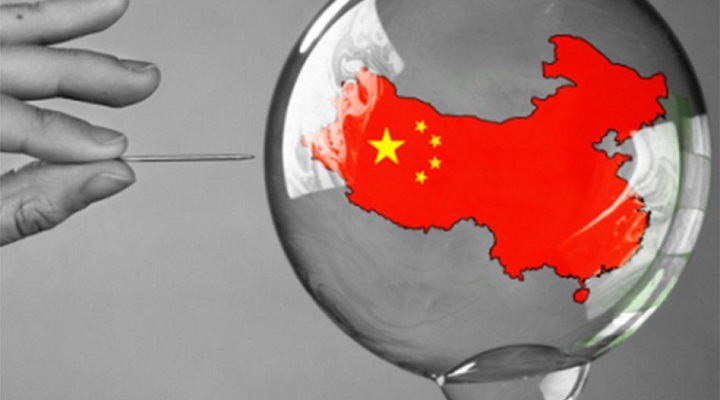
A new document, issued on December 15[1], announces a bold 13-year plan, 2022-2035, to boost domestic consumption and stop export growth that might reach the staggering surplus of US $1 trillion at the end of the year.
The plan is long overdue, as economists have been discussing expanding China’s domestic consumption, especially private consumers’ demand, for over two decades. It was announced against the backdrop of Beijing’s unprecedented friction with the United States and many of China’s neighbors. They all resent Beijing’s assertive foreign posture and aggressive exports.
Washington, China’s single largest export market, is moving ahead with programs to decouple China’s economy from its own, which would leave Beijing unable to sustain its exports.
China has been reluctant to open its domestic consumption as the internal market is badly divided between different provinces, and there are many local hurdles. Conversely, for decades Beijing was keen on expanding exports that would gain much-coveted foreign currency, foreign technology, and foreign market share.
However, apparently, Beijing didn’t prepare for the political blowback of its foreign expansion, which irked many trading partners. Beijing’s trade expansion has reshaped global commerce as it suddenly pushed out of the market many competitors.
Still, it won’t be easy to make up for the foreign difficulties. There are doubts Beijing can expand overnight its private consumers’ demand, which should account for about 1/3 of its GDP.
The document talks of “domestic consumption” accounting for 50% of its GDP. But it doesn’t mean “private consumption.” It may also mean domestic consumption of public entities, something that can be easily primed up by Beijing but which creates more internal debt on top of the gigantic existing one.
Moreover, as the present Covid wave will end, maybe sometime in April, consumption should bounce back. But it’s unsure whether it will be a sustained consumption recovery or just a burst deflating later in the year.
The long-term hindrances to spending and the old incentives to being thrifty are still there. China still has no free health care or education system; there are no universal pensions, unemployment benefits, et cetera, despite bold announcements at the beginning of the year of a plan to overhaul the whole state and better provide for the less fortunate.
People save to be prepared for all of this.
The Central Economic Work Conference[2] tried to address some of the long-term issue arguing that: “Social policies should ensure people’s livelihood, put promoting the employment of young people, especially college graduates, in a more prominent position, and strive to mitigate the impacts of structural price rises on some of those in difficulty in a timely and effective manner. The country will optimize childbirth support policies and seek to gradually postpone the statutory retirement age when time is right and take the initiative to cope with population aging and low fertility rate, it noted.”
Still, there’s the saving culture. Italians still save despite having a very generous welfare state because they are still peasants in their bones. Maybe the Chinese are not so different, but, in any case, short of a generous welfare state, people need savings to survive.
Many Chinese workers are paid once a year at the Spring Festival. Then they need to save enough for a year or maybe two years, as year-end salaries could be delayed or forfeited. In the UK, for instance, people are paid once a week, thus giving them no incentive to save. In the worst case, they have to scrimp for a few days until the next paycheck. In China, people traditionally will starve to death if they don’t save.
Lastly, there’s the general uncertainty. Will the Chinese, after Covid, feel confident about their future? Covid and its policies shattered many certainties. Is China really better than democratic countries, as the official propaganda announced in 2020, when the plague stopped global economies while Beijing was still pumping? Two years later, the picture may be totally reversed, as democratic countries are long out of the epidemic while Beijing still battles it.
Then, if China isn’t better than democracies, what will the common Chinese do, save or spend?
Zero-Covid policies were turned off like an electric switch without preparations. Will that give confidence to the ordinary people or not?
The party is not stupid, and possibly it has considered all these elements, thus the plan’s long term, 13 years, to cope with all of this.
Therefore, it is crucial to see what is going to happen, knowing full well that the plan is 20 years late and there are huge logjams between the wealthy 400 million living in the big cities and the 1 billion people who are still behind.
In any event, even domestic consumption from public entities brings about the issue of costs. Who will pay for the new consumption? New taxes, as we wrote 15 years ago,[3] arguing that they would also bring about a political crisis around the time of the 20th Party Congress in 2022.
The document says the state needs to increase taxes, which entails a conundrum.
- You take the tax money and, in return, give the taxpayers no say in how and where it is spent. Then the risk is that taxpayers will have a shrinking incentive to make money, as they will feel robbed. The whole economy suffers, but authoritarian politics stays on course.
- Or you give taxpayers a say in how their money is spent, a new social contract is established, and the economy shouldn’t suffer. But politics will have changed.
The party may choose option 1 now, it is sounder and with less shocks, especially since the international environment is still highly undecided. Option 2 is full of question marks and the party traditionally wants to play it safe for as long as it can.
The party is apparently considering pros and cons and is venturing into previously unknown territories. As with zero-Covid policies turned off overnight, one can’t underestimate Beijing’s drive for drastic measures.
[1] https://baijiahao.baidu.com/s?id=1752202794156995926&wfr=spider&for=pc
[3] See China’s Inevitables: Death Taxes—and Democracy, originally published on La Stampa in 2007 and reprinted in China: in the Name of Law. A New Global Order in 2016.





